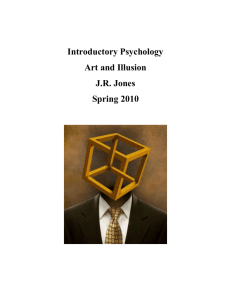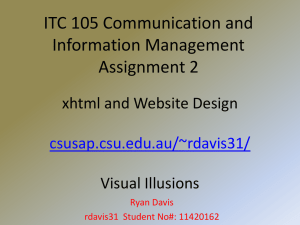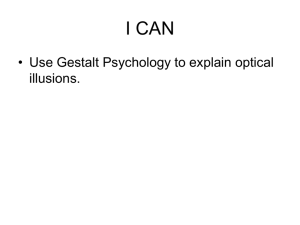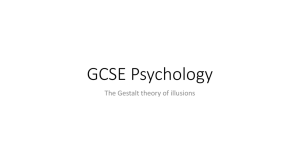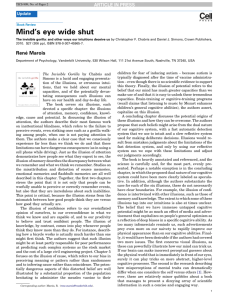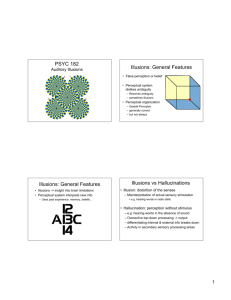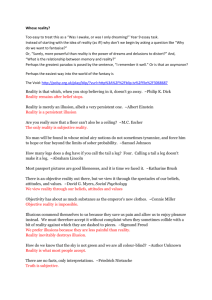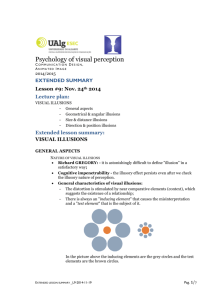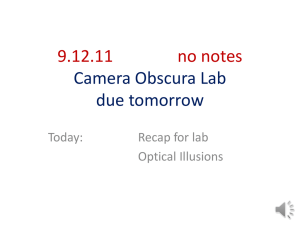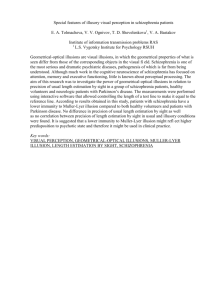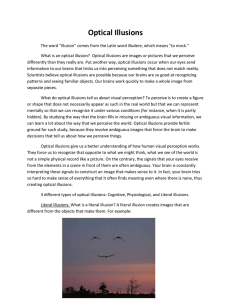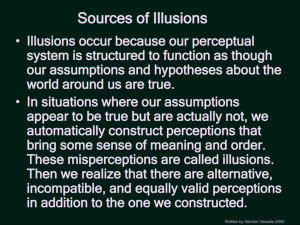Misperception of Random Data
advertisement
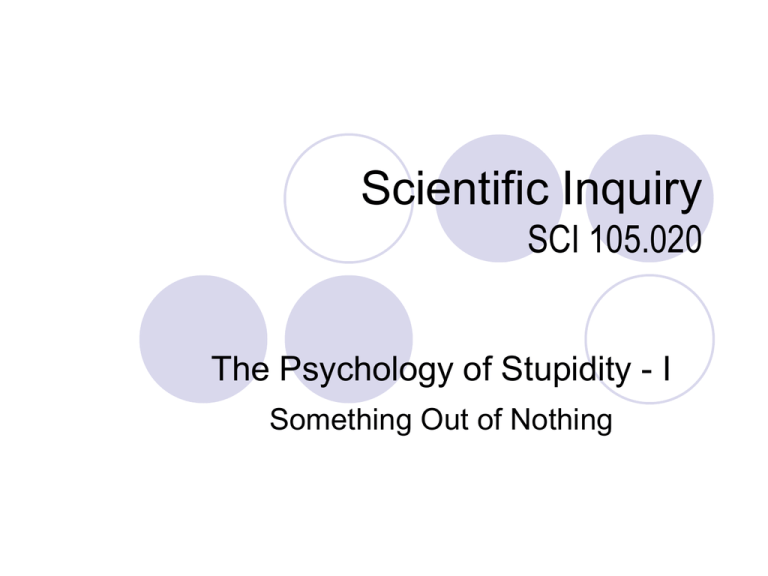
Scientific Inquiry SCI 105.020 The Psychology of Stupidity - I Something Out of Nothing Data, Information, and Knowledge Data Also known as random data, raw data Factual information (as measurements or statistics) used as a basis for reasoning, discussion, or calculation Information The communication or reception of knowledge or intelligence Presented as a message to another individual Knowledge The fact or condition of knowing something with familiarity gained through experience or association Presented as concepts, predicates, rules, etc Examples Let’s look at some data about a weather data set concerning whether a game is played under different weather conditions The individual data entries, such as Outcast/Sunny, Humidity/High don’t mean anything by themselves We can generate informative reports using these data: Out of the 14 records, there are 6 with high humidity, 8 with normal humidity. We can also discover some patterns We are 85.7% confident that it will play when humidity is normal; 75% confident that it will play when humidity is normal and it’s cold Illusions Human cognitive mechanisms do have flaws The Gateway Arch illusion (Gilovich, p17) A similar optical illusion caused by two arches Which one is bigger? The Muller Lyer illusion More illusions can be found at www.coolopticalillusions.com What’s more dangerous? The illusions are so strong that it is not eliminated simply by knowing the correct answer Illusions on Random Events Finding patterns out of our observations is the right way to discover new knowledge But, be careful, overuse such strategies can also cause problem Erroneous beliefs are hard to eliminate once they are formed In this chapter, Gilovich emphasized on people’s erroneous intuitions about how random events should look Nature Abhors a Vacuum People are disposed to see order, pattern, and meaning in the world Human nature abhors a lack of predictability and the absence of meaning As a consequence, we tends to see order where there is none We simply tend to see something out of nothing for no good reasons Psychologists believe this is due to flaws in the cognitive machinery we use to comprehend the world Misconception of Random Data The dislike of randomness and seeking for order and patterns may leads to Cluster illusion The belief in a “hot hand” in basketball The regression fallacy The representative heuristic is a major contributor to these errors Cluster Illusions Erroneous human intuition about random events A random event shouldn’t have any clusters at all Rather, it should be perfectly evenly distributed Coin-flipping exercise First, make up a 20-flip sequence Then, flip a coin 20 times Compare C2 test: Can you reject the claim that the head-tail mix is evenly distributed? Representative Heuristic Read this paragraph and answer the question Steve is very shy and withdrawn, invariably helpful, but with little interest in people or the world of reality. He has a need for order and a passion for detail. Is Steve more likely to be salesperson or a librarian? The Regression Fallacy The Sports Illustrated jinx Which is more effective: praise or punishment?
